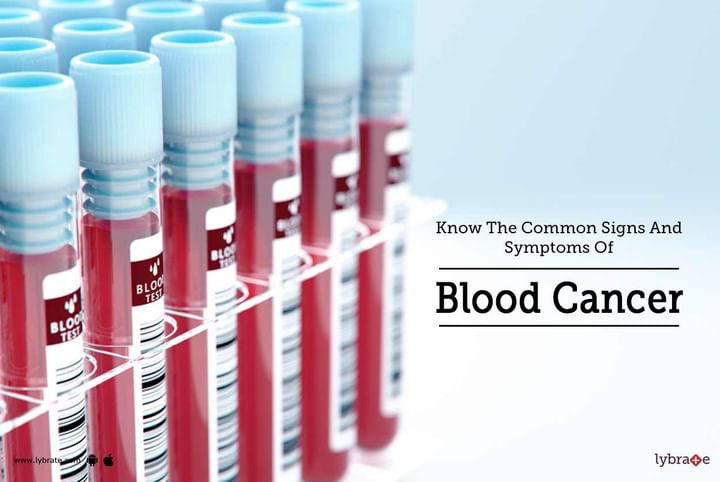Know The Common Signs And Symptoms Of Blood Cancer!
When the development of your blood cells is disturbed, it is then that blood cancer occurs. This disruption does not let the cells work properly and they may grow out of control. As a result, your blood will not be able to perform the functions it normally does to keep you healthy, such as fighting infections etc.
Blood cancer affects three major components of the blood, namely white blood cells and marrow, lymphocytes, and plasma. These are respectively known as leukemia, lymphoma, and myeloma. The most commonly affected are the white blood cells.
Symptoms for each of these types differ, and have been listed below:
Leukemia
Leukemia can be acute or chronic. In acute cases, the symptoms are more noticeable than the chronic ones. If the white blood cells are affected, then it causes the following:
- Shortness of breath
- Anemia
- Extreme tiredness and lack of energy
- Profuse sweating
- Increased susceptibility to infections
- Profuse bleeding during menstruation in women
- Swollen lymph nodes
- Headache and blurring of vision
- Bones and joint pain
- Chills and night sweats
Lymphoma
A type of white blood cells, lymphocytes, help in fighting infections. Excessive growth of these leads to enlarged lymph nodes, which is often painless. However, other typical symptoms include:
- Severe coughing
- Swollen lymph nodes which are often generalized
- Severe weight loss, which is often unexplained
- Fever
- Sudden chills and night sweats
- Extreme/severe fatigue, even with minimal activity
- Abdominal fullness
- Itching of the skin
Myeloma
This form of cancer affects the plasma, which are responsible for carrying the blood cells throughout the body. Multiple myeloma is the most common cancer in this group, and this is generally a chronic condition. Symptoms are atypical and include:
- Generalized weakness and fatigue
- Increased incidence of infections
- Shortness of breath
- Chest pain
- Pain in the back region
- Kidney issues, which can be indicative to look for myeloma
There are more than 130 varieties of blood cancer, but the above three are the most common ones. Once suspected, it is very easy to diagnose blood cancer with blood tests. If a person has a family history, then they should watch out for early symptoms, and should immediately seek medical assistance.


+1.svg)
